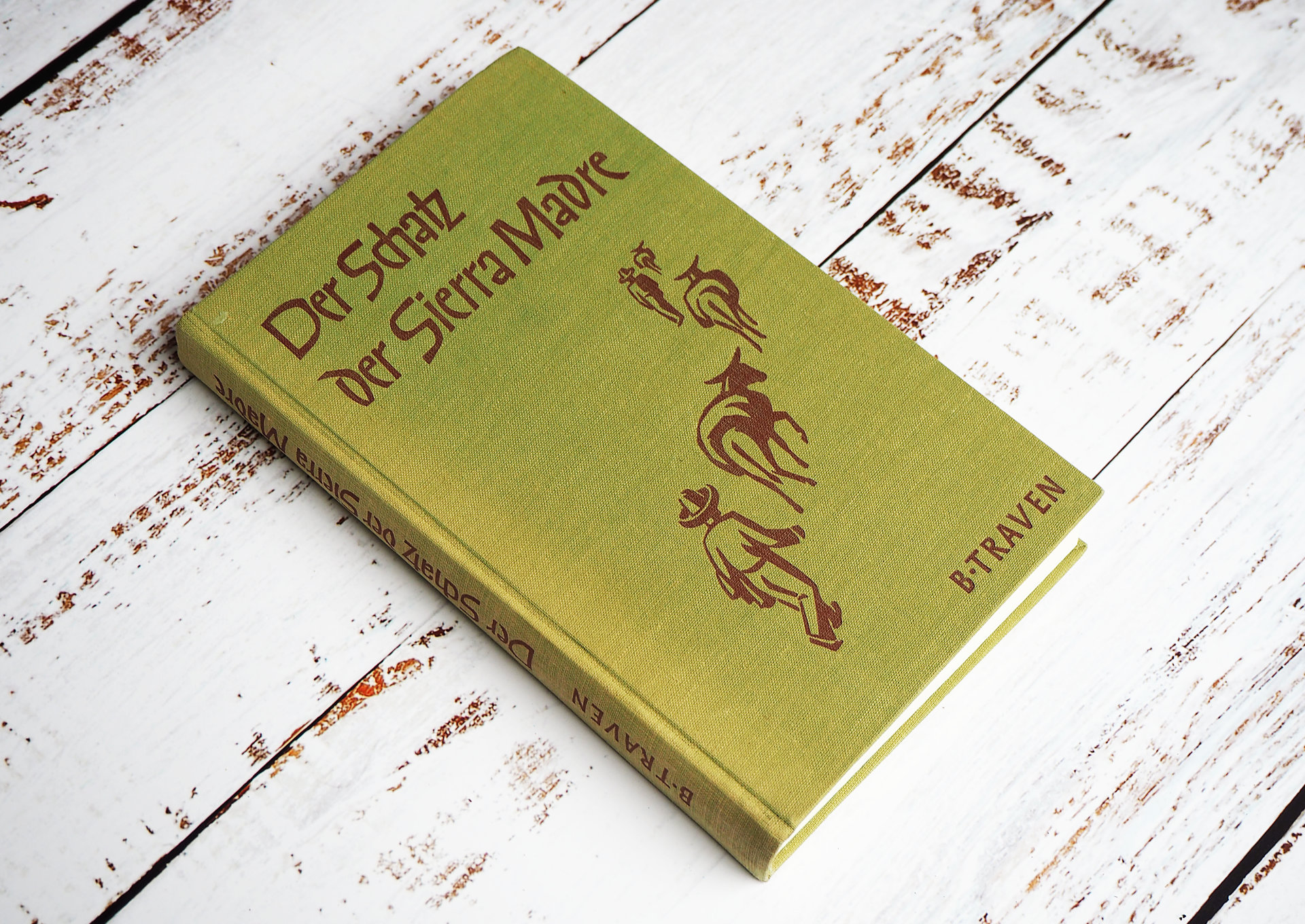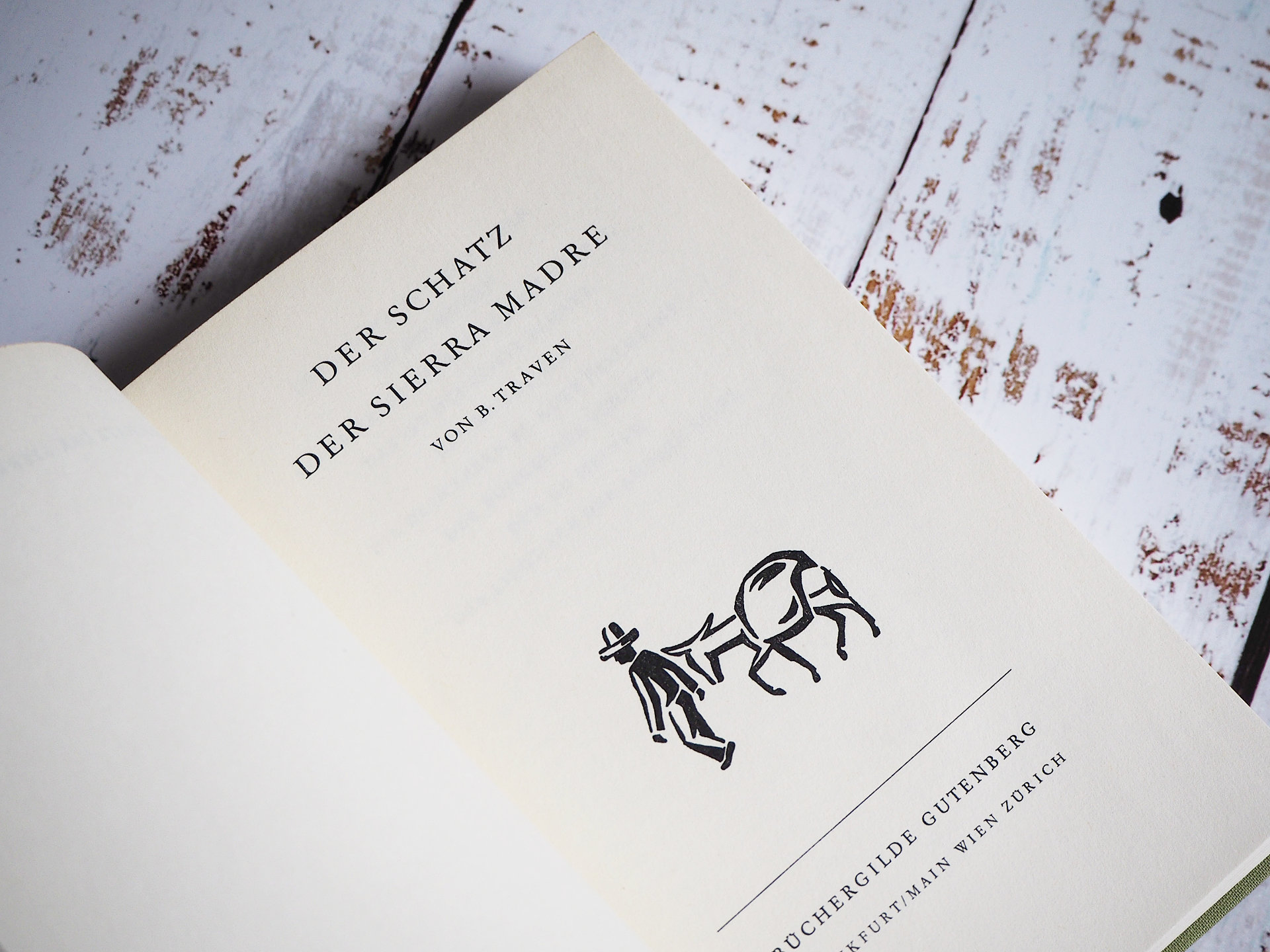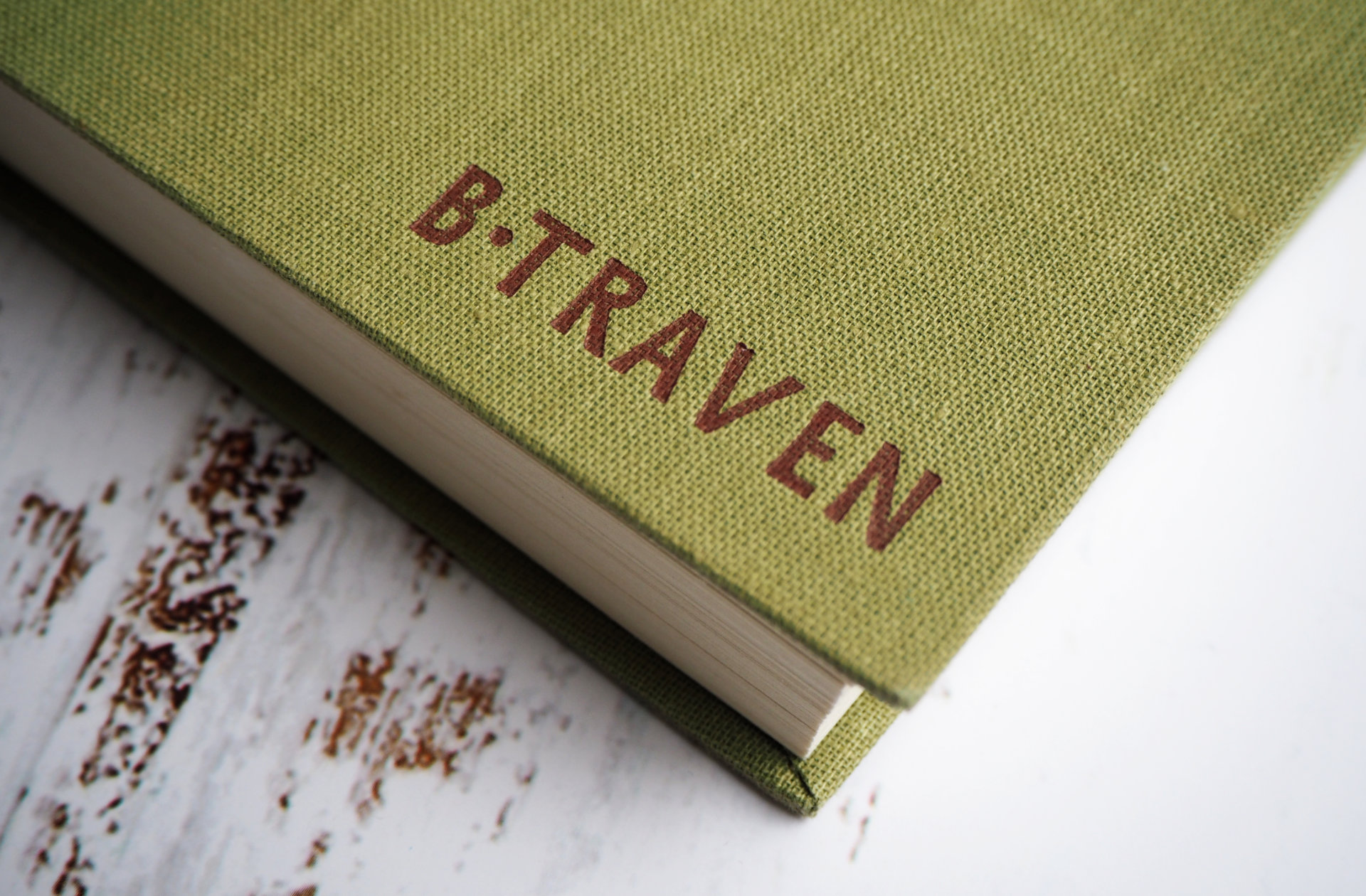The Treasure of the Sierra Madre • B. Traven

The good old adventure novels are almost always a guarantee for real reading pleasure, and I regularly reach for such books. You can usually find them for little money in online antiquarian stores, and that’s how I got myself a low-budget edition of The Treasure of the Sierra Madre. The author and the novel were a recommendation from a nerdy friend of mine who’s always completely off the mainstream but has excellent taste. I’d already read The Death Ship on his recommendation and really liked the blunt writing style and the subtle jabs at capitalism. So I was all the more curious about another of his best-known books.
The Treasure of the Sierra Madre tells the story of three penniless Americans who end up in Mexico, where they set out in search of gold. Traven depicts the conditions in Mexico and the harsh realities faced by workers toiling for large oil companies. He portrays the Mexican wilderness, the rough manners of the common laborers, and, of course, the capitalist greed for gold that undermines human decency and morality. Structurally, the novel is reminiscent of Jack London’s tales of gold prospectors in wild Alaska. Readers can expect a solid, classic adventure story here.

At just 280 pages, the book isn’t particularly long and reads quickly and pleasantly. I enjoy Traven’s direct and unvarnished style—the way he lets his characters speak and how his novels always radiate the simplicity of the working class. It feels very authentic, and he doesn’t shy away from coarse language. I really appreciate it when someone says things plainly, without beating around the bush. Traven doesn’t mince words; he openly criticizes capitalism but also socialism, and he describes people exactly as they are—showing that conscience often doesn’t go very deep, how cruel and heartless people can be, and how they’ll sell each other out when given the chance. The way his characters behave feels very real, and that’s where his social critique lies: he underlines his ideas through the exemplary actions of his characters and the commentary he weaves throughout.
“He’s got just as much or as little conscience as the rest of us when he thinks he’s got to use his elbows to get ahead. Where there’s no accuser to be expected, it lies silent, like an empty liquor bottle in a dusty corner. Conscience only comes to life when it’s supported. That’s what prisons, hangmen, and hellfire are for.” (p. 278)
I found the story exciting in places, but not as cohesive as in other adventure novels. It lacks a bit of a clear throughline, and there are several passages that, while entertaining, felt somewhat uneven. Traven doesn’t lead the reader toward a particular climax or resolution; instead, the narrative feels more episodic at times.

Who exactly stood behind the pen name B. Traven was long disputed. Today, it’s generally accepted that he was Otto Feige, born in 1882 in Schwiebus, then in the Prussian province of Brandenburg (now in Poland). After several stops, he ended up in Munich but had to flee in 1919 after taking part in the revolutionary days of the Bavarian Soviet Republic and facing a court-martial and possible execution. He managed to enter Mexico under a new identity, where he lived for many years. His publisher was the Büchergilde, which released his twelve novels as well as several short stories. Most of his works are set in Mexico and have been translated into numerous languages, with roughly 30 million copies sold worldwide.
B. Traven used multiple identities, and it wasn’t until the 1970s that British BBC journalist Will Wyatt was able to uncover them through police records and reveal his true identity. Despite that, speculation continued, though based on Wyatt’s findings, Jan-Christoph Hauschild was later able to reconstruct Traven’s entire life path, leaving little room for doubt about who he really was.

Since the Büchergilde was Traven’s publishing house, it’s only fitting that I got myself an edition from that publisher. Not the first edition, though—just a slightly later one that was easy on the wallet. The Büchergilde books from back then still had proper thread binding and feel as if they were made to last forever. Especially for adventure novels, I always like the older editions best.
Conclusion: B. Traven’s most famous novel is once again an exciting read, firmly in the tradition of the classic adventure novel. His clear, direct language; his critique of society and human nature; and the overall setting make it both engaging and thought-provoking. The story’s structure feels somewhat episodic and not as tightly woven as other adventure tales I’ve read. Still, it’s an enjoyable read, though not a must-read masterpiece. Anyone in the mood for a solid classic won’t go wrong here—it’s a pleasantly readable, entertaining book.

Huhu
Oh, das wäre auch ein Buch für mich ? Finde es toll, dass du auch ältere Bücher liest und für dich entdeckst ^^
LG
Tinka
Ich habe dieses Buch geliebt, selten so was Spannendes gelesen (wenn auch schon vor langer Zeit). Es ist eben nicht bloß ein Abenteuerroman (auch wenn es Travens am wenigsten Kritisches ist). Was die Ausgaben bei Traven betrifft, muss man sehr aufpassen: Neuauflagen seiner Romane wurden von ihm immer wieder bearbeitet, stellenweise erweitert und gekürzt, allein schon, um seine Herkunft noch gewissenhafter zu verschleiern (denn in den Erstausgaben war er relativ “unvorsichtig” und hat Bezüge zu Deutschland erkennen lassen). — Traven ist heute fast vergessen, sehr schade!
Danke für den schönen Beitrag, Tobi, von einem deiner heimlichen Mitleser. Und, weil es hier fehlt, der Hinweis, dass der Roman Vorlage war für den großartigen Film
https://de.wikipedia.org/wiki/Der_Schatz_der_Sierra_Madre
unbedingt und immer wieder sehenswert.
Liebe Grüße
JeanP